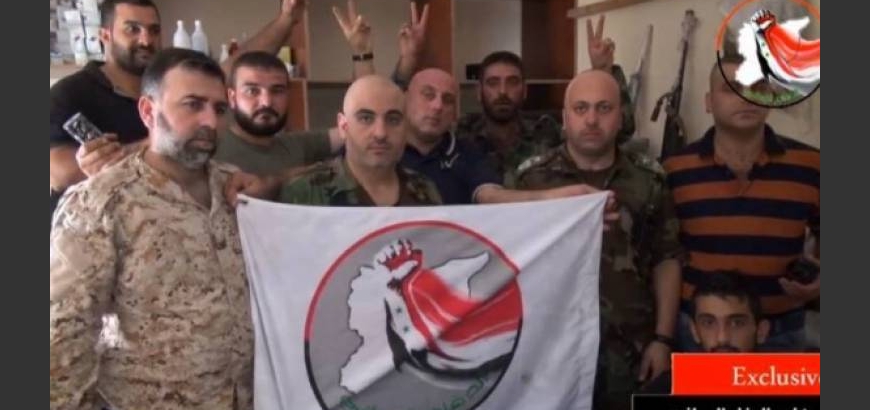The local coordination councils in the city of Jableh have revealed widespread arrests carried out by regime security agencies against prominent commanders in the National Defense militia in the city, which included commanders Rami Saad and Samuel Muna, on charges of theft against city residents.
An official from the committees, Abou Youssef Jablawi, told Alsouria Net that the security campaign, launched two days ago, also included Ayat Barakat, commander of the National Defense militia in the city, but that he was able to flee to Lebanon via the al-Arida crossing before he could be taken.
According to Jablawi, Barakat had been one of the most “prominent faces of the shabiha” in Jableh over the last few years and had been, “accused of widespread corruption and theft estimated in the millions of Syrian pounds, as well as the killing and execution of dozens of young opposition men in the city.”
The report was confirmed by the Jableh News Network, a pro-regime page in the city, which published what it said were leaks from the investigation of Samuel Muna, the right-hand man of Ayat Barakat. These included him acknowledging obtaining 60 million pounds from someone wanted by the security agencies in order to get him acquitted, as well as other crimes related to “theft and stealing property and land owned by well-known traders” in the city under threat, and stealing 30 million pounds from the house of the so-called H.E.
With regard to Barakat, activists in Jableh said that he had disappeared from view since the start of the security campaign, with members of the Air Force Intelligence raiding the main National Defense base in Jableh and arresting some members there.
Who is Ayat Barakat?
The National Defense militia was set up in Jableh at the start of 2013 by Barakat, who its from the villages of the Jableh countryside, and backed by Hafez Makhlouf, cousin of Bashar al-Assad, as a support militia for regime forces. It ran checkpoints in the city and supported Assad’s forces on the Lattakia countryside fronts.
Since the militia was established, it has taken the Sports City as its base, with wide-ranging power. Barakat and his gang have been known for their extreme brutality towards opposition members in the city and for carrying out arrests and torture in their prisons.
Zakaria, a resident of Jableh, told Alsouria Net that Barakat was personally responsible for torturing to death more than 13 young men from the city between 2013 and 2015, while his militia has resorted to funding itself through kidnappings which have affected well-known traders in the city, some of which have ended with the captives being killed.
A young man in his 30s who asked not to be identified for security reasons said: “Barakat’s brutality and his influence in the security agencies has forced residents to submit to him and his blackmail, as happened with a number of gold traders who had to pay him fees from time to time.”
What has changed?
Despite all Barakat’s crimes, the regime security agencies did not move against him until a few days ago, which activists put down to his links to the recent campaign the regime began in Lattakia to rid itself of loyalist militias after their influence began to grow, which affected prominent figures such as Ayman Jaber, Ghaidaq Deeb and Bashar Talal al-Assad.
Lawyer and activist Arwa al-Sousi, who is from Jableh, said that, “the regime has moved to dissolve the National Defense militia in the city and to arrest its leader, which comes as part of a general campaign for the regime to internally restructure itself, in an attempt to show its ability to fight internal corruption and to eradicate all influential miltias, even if they are relatives.”
This article was translated and edited by The Syrian Observer. The Syrian Observer has not verified the content of this story. Responsibility for the information and views set out in this article lies entirely with the author.


